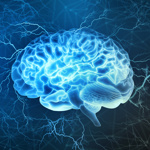World Mitochondrial Disease Week
News, Sep 16 2025
In honour of World Mitochondrial Disease Week, take a closer look at the diverse health implications of mitochondrial dysfunction with reviews and research papers from across our Journals.
Professor Christine Foyer, an expert in plant metabolism and its regulation under optimal and stress conditions and an Associate for our Biochemical Journal highlights the plant perspective on mitochondrial disease to support the importance of continued, multidisciplinary research into this area.
“We are rapidly moving into a new Carbon-rich, but nutrient-poor world, where Carbon becomes a 'cheap' commodity for plants, as well as humans. Within this context, understanding the nuances of mitochondrial regulation, particularly the pathways of communication between the mitochondria and nucleus, becomes increasingly important. Plant mitochondrial diseases (mitochondrial dysfunction) generally result from mutations or loss of mitochondrial DNA functions that impair cellular energy production, which are often lethal, causing cytoplasmic male sterility, chlorosis, and poor growth.
Inhibition of mitochondrial energy production leads to the generation of reactive oxygen species (ROS), which signal faulty energy metabolism. How such signals are transmitted to the nucleus has long remained a mystery, but recent evidence implicates the Ca2+-dependent regulation of the outer mitochondrial membrane beta-barrel channel, called VDAC3. VDAC3 regulates ROS movement from the mitochondrial interface to the nucleus and so regulates nuclear gene expression. The elucidation of such plant pathways may shed new light on how to tackle mitochondrial diseases in humans.
Consider the human perspective and impact of mitochondrial dysfunction at a cellular level with this collection of articles from across our journals.”
Further reading
-
Mechanisms and pathologies of human mitochondrial DNA replication and deletion formation
- Delineating mechanisms underlying parvalbumin neuron impairment in different neurological and neurodegenerative disorders: the emerging role of mitochondrial dysfunction
- DY131 activates ERRγ/TFAM axis to protect against metabolic disorders and acute kidney injury
- Effects of carotenoids on mitochondrial dysfunction
- Cardiomyocyte-specific deletion of the mitochondrial transporter Abcb10 causes cardiac dysfunction via lysosomal-mediated ferroptosis
- Interactions of mitochondrial and skeletal muscle biology in mitochondrial myopathy
- Beyond the TCA cycle: new insights into mitochondrial calcium regulation of oxidative phosphorylation
- LRRK2-mediated mitochondrial dysfunction in Parkinson’s disease
- Mitochondrial translation inhibition triggers ATF4 activation, leading to integrated stress response but not to mitochondrial unfolded protein response
Discover our curated content on mitochondria from the Biochemical Society, Portland Press, and our partners, allowing readers to discover more about these multi-faceted and dynamic organelles.




